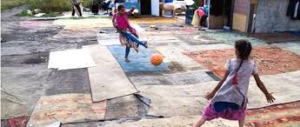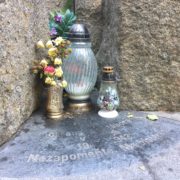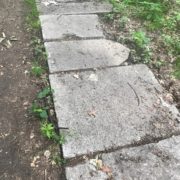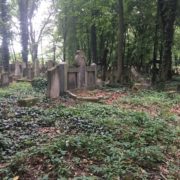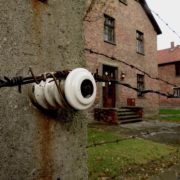My Big Fat Gyspy Wedding or My Big Fat False Portrayal?
By Erin Kenney
Several months ago, if someone asked me what I knew or thought about Roma people, I likely would have answered with a blank stare. Eventually, I would have made the connection to the name frequently used throughout the United States, gypsy. And with that realization, I solely would have been able to discuss Romani culture based off of its portrayal in American media through “My Big Fat American Gypsy Wedding” and Esmerelda from Disney’s The Hunchback of Notre Dame. Until recently, my understanding of Romani culture consisted of poufy, colorful dresses and a nomadic, secluded lifestyle. Within my first day of volunteering with NOMADA, an organization geared towards helping the Wrocław Romani settlement and other disadvantaged groups, these preconceptions were thrown out the window as I was personally introduced to the Roma culture.
Coming from a country whose discourse traditionally represents the Roma as willingly stateless or nomadic peoples, I was surprised to learn about the longevity of Wrocław’s settlement. Despite persistent battles against state evictions, the Roma settlement in the city has existed for approximately seven years. A lack of mobility within this Roma community is further demonstrated by the desire of community members to obtain a greater level of citizen and steady employment. Sadly despite the wishes of these people, prejudice and an animosity towards Romani culture has made it difficult for them to gain permanent employment. Learning about this cruel reality, I began to realize that I have much to learn about Romani culture, specifically not from American media.
During my first day with NOMADA, I was brought to the Roma settlement in Wrocław and was rightfully introduced to Romani culture. Trudging through the brush to reach Wrocław’s Roma settlement, I anticipated that I would have been standing off to the side, waiting to leave, as the people of NOMADA interacted with the members of the settlement, for I was under the impression that Roma people were apprehensive to the outsiders. However, within a matter of minutes, I was surrounded by a number of curious Roma children, eager to see the newest visitor to the settlement. With only the ability to say, “Jestem Erin,” and to make silly faces, I was astounded by the ability to create an unexpected personal connection with a young girl named Paradisa. Despite a distinct language barrier between myself and Paradisa, we began to play a game mimicking the concept of ring around the posy incorporating countless ballerina twirls. Had my assumptions of Roma culture been correct, Paradisa would’ve been apprehensive to welcome me to the settlement with such games and her parents likely would have forbade it.
In addition to the portrayal of a self-centered culture, TLC’s hit show depicts a community of people that appear closed off from the rest of society. Lacking the flamboyant dresses of American media, the Roma settlement disproves a great deal of popular American discourse. From the several episodes of “My Big Fat American Gypsy Wedding” which created the foundation of my previous Roma knowledge, I had anticipated a group of people whom were going to be materialistic and self-centered. What I found in the Roma settlement, was quite different. The families appeared to have an open door policy throughout the settlement, as children and adults walked in and out of each other’s dwellings. I began to grasp the importance of community to this settlement of Roma when I was told how the settlement maintains electricity. Each day, every family gives five złoty which is pooled to buy fuel for the settlement’s generator. Upon learning bit of information, I was immediately struck by the communal strength within this Roma settlement, for I have never witnessed such a strong and devoted bond amongst a group of people.
During my short time in Wrocław, I have certainly learned that I have to be skeptical about my assumptions and preconceived knowledge of topics. Volunteering with NOMADA has helped to make me realize that popular media and discourse can be detrimental to one’s mindset. As a result, I have found myself to be more critical of my surroundings and the content which is presented to me whether in a purely recreational or academic setting. My experience with NOMADA has undoubtedly been a rewarding experience for both the introduction to a beautiful culture and the lesson that I need to question my surroundings.


